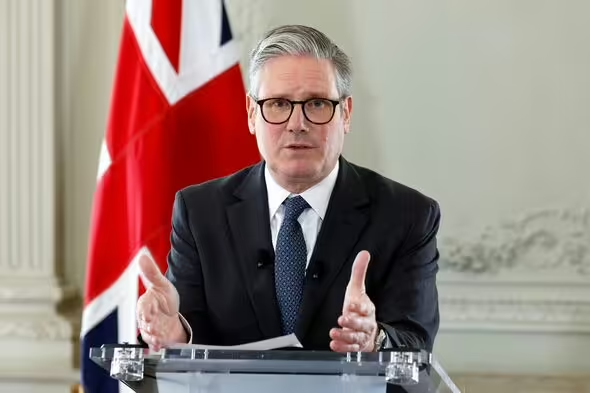Labour is under intense pressure to rethink after Thursday’s disastrous local election results and by-election defeat.

Prime Minister Sir Keir Starmer (Image: Getty)
Sir Keir Starmer is under mounting pressure to clarify his position on winter fuel payments after last week’s disastrous local election and by-election results. The benefit has historically provided millions of pensioners with essential support to help cover heating costs during the coldest months.
For many elderly people, especially those living alone or without family support, this payment can make the difference between affording adequate heating and being forced to ration it. The scheme has long been regarded as a key component of the UK’s social safety net. In recent years, changes to eligibility and rising energy prices have left many older people struggling to stay warm.
The Labour leader has so far avoided making a firm commitment, fuelling uncertainty among pensioners and pressure groups alike. With winter just months away, the debate over how best to support vulnerable households is intensifying. So what do you think? Vote in our poll and join the debate in the comments section. Can’t see the poll below? Click here
Soaring fuel bills, combined with high inflation and stagnant pensions, have pushed countless households to the brink.
Charities have repeatedly warned that pensioners are being forced to choose between heating and eating.
The issue is particularly acute in rural areas, where homes are often harder to heat and less energy-efficient.
Campaigners argue that restoring full winter fuel payments is a moral obligation, not just a political choice.
They say it’s about protecting those who have paid into the system for decades and deserve dignity in retirement.
Several age-related charities have called for urgent action, warning that thousands could be put at risk if the Government does not act quickly.
Critics of the current system say it disproportionately affects those on fixed incomes who have no alternative means of coping with surging bills.
They argue that cutting or scaling back the payment amounts to punishing those least able to adapt.
However, others believe the policy should be targeted more precisely, warning that wealthy retirees continue to receive the payments unnecessarily. They suggest means-testing the benefit to ensure that limited public funds are directed to those most in need.
Supporters of a universal approach argue that it guarantees simplicity, reduces administrative costs, and ensures that nobody is left behind.
They warn that any shift to a means-tested model could increase complexity, delays, and errors, risking the exclusion of the very people the scheme was designed to help.

